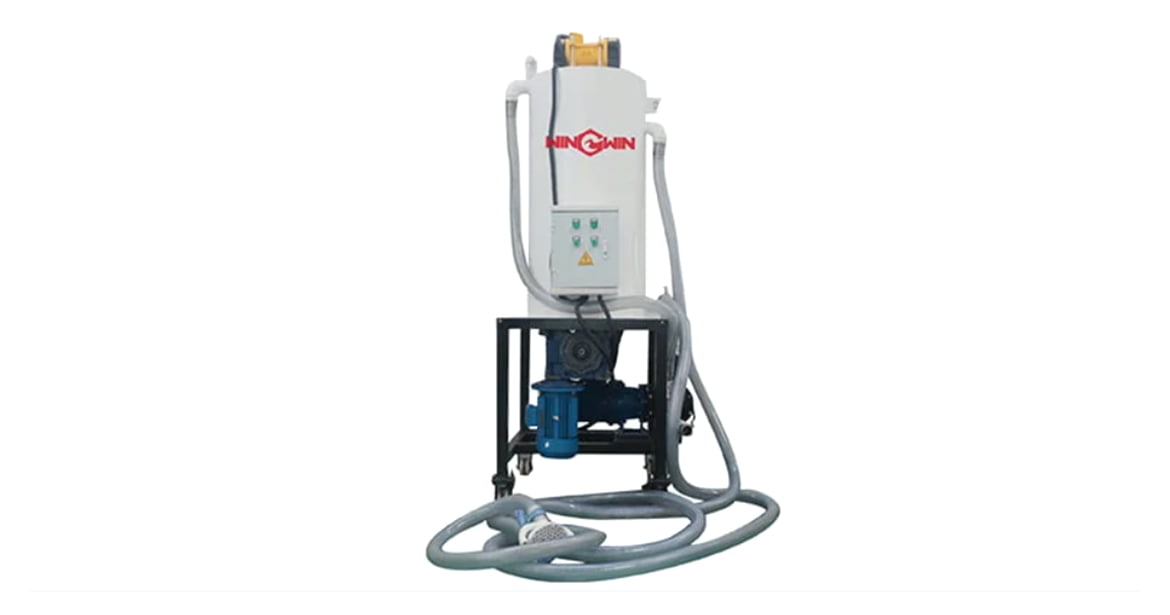Good News: American customer purchased 8 units of our waterjet abrasive removal system at one time.
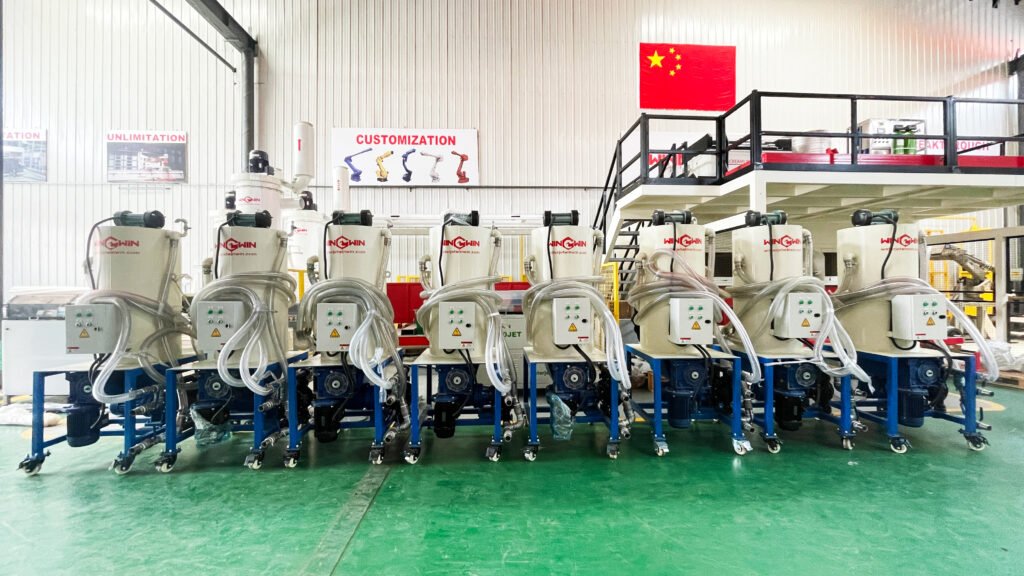
Content
I. How does the waterjet abrasive removal system work?
II. How to use the waterjet abrasive removal system?
III. What’s the advantages of the waterjet abrasive removal system?
IV. Can we use the treated abrasives by the machine?
Waterjet Abrasive Removal System Garnet Recycling And Removing For Any Brand Water Jet Cutting Machine Waterjet Residual Abrasive Removal System for Waterjet Cutter. You can follow our YouTube channel for the new cases of waterjet workstation.
Are you struggling to clean up the waste abrasive in the sink of your waterjet cutting platform?
Do you not know what method to clean up more efficiently?
Are you looking for ways to clean up efficiently?
Then please see the following introduction, Win-Win’s automatic waterjet abrasive removal system.
After the waterjet has been used for a long time, waste abrasive will accumulate in the water sink. When it reaches a certain level, we need to do the work of cleaning the waste abrasive, in the traditional abrasive removal, we have to stop the work of the cutting table and do manual abrasive removal. In the past, these were manually operated. The long-term accumulated abrasives and cutting workpiece debris accumulated at the bottom of the water jet machine tank, forming thick sediments similar to silt. Manual cleaning is very laborious and requires a lot of strength and close proximity. Half a day’s work time, very unfriendly to workers.
Now, with the mobile waterjet abrasive removal system, we can remove abrasive without affecting normal cutting, and it is an automatic abrasive removal system.
Question: how to use the auto waterjet abrasive removal system? Is it difficult?
The operation method of using the auto waterjet abrasive removal system is very, very simple. The whole machine has four control buttons, button 1 and button 2 to start and pause. Separately control the auto waterjet abrasive removal system to carry out the sewage suction mode to absorb the sewage and impurities in the water tank of the cutting platform; the machine uses the centrifugal force to separate the water from the impurities and abrasives in the water, and the water will be discharged back into the water tank through another pipe for continued use. No waste is generated. When the volume of impurities in the auto waterjet abrasive removal system reaches the observable mark, turn on another button to make the auto waterjet abrasive removal system enter the sand discharge mode, and all dehydrated abrasives and cutting workpiece debris will be discharged.
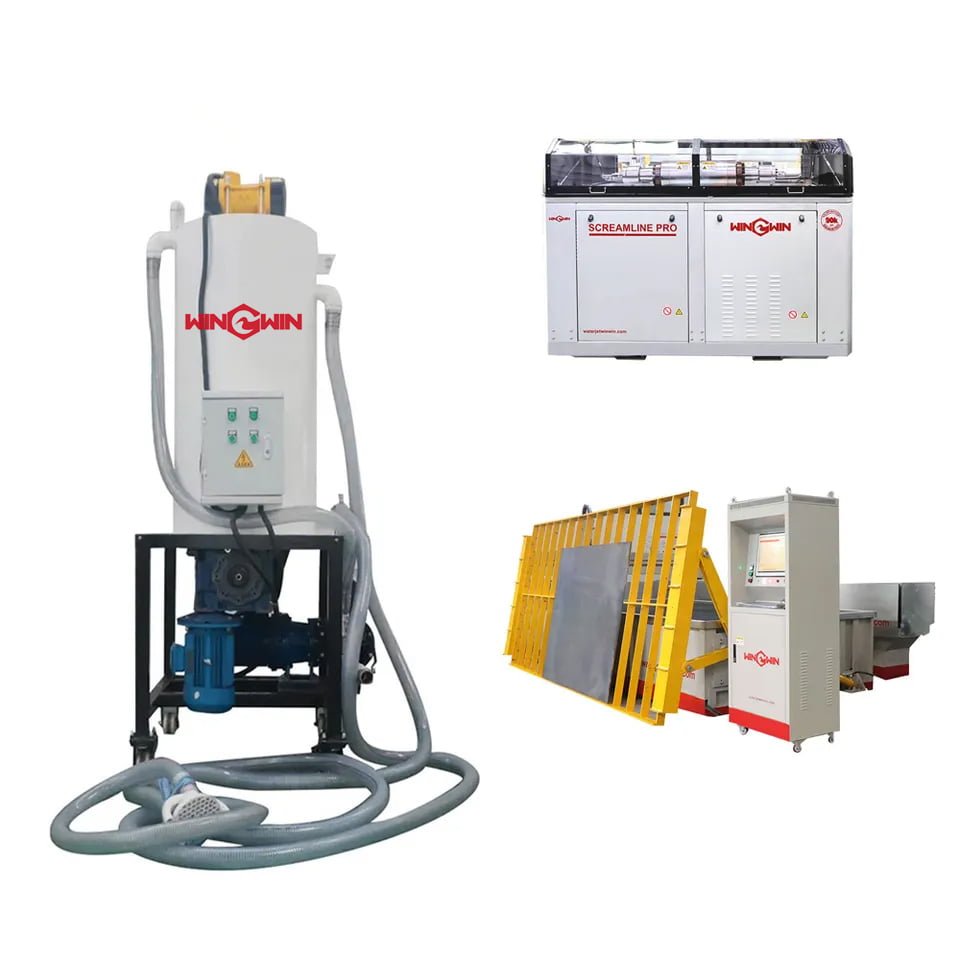
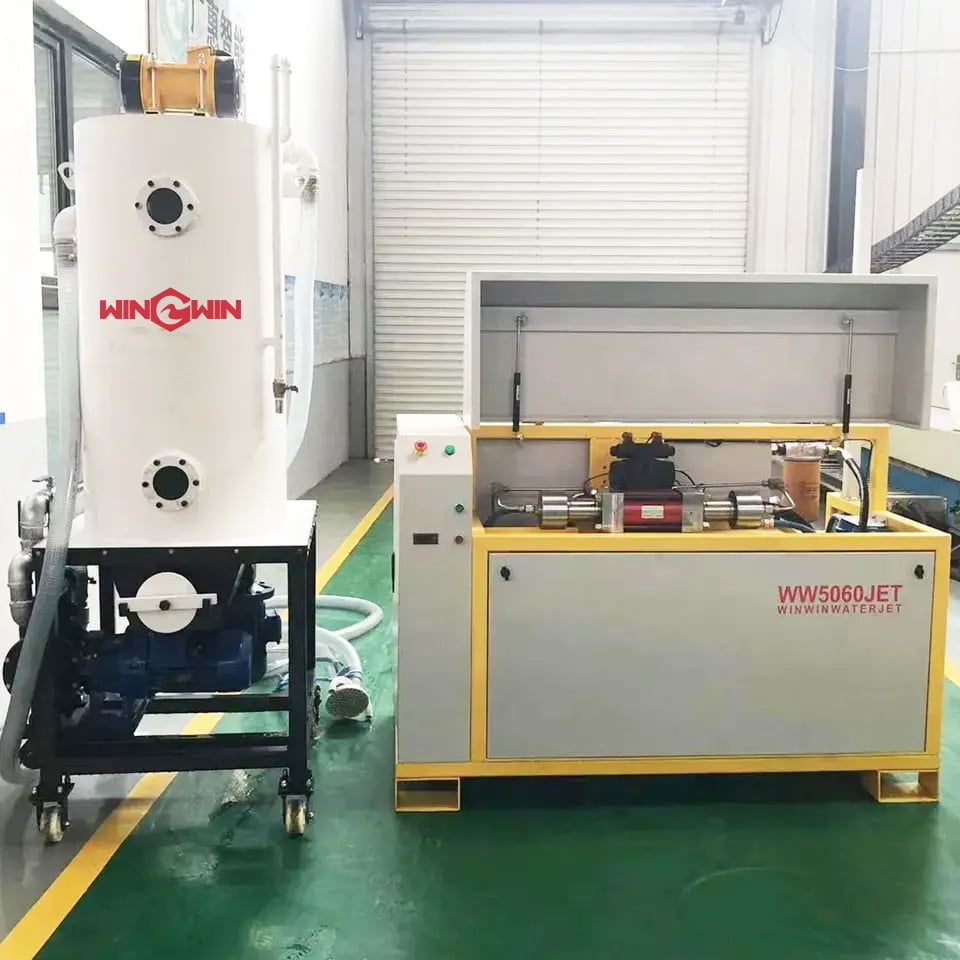
· Can effectively and quickly remove abrasive in large sinks
· When the waterjet cutting machine operates, the large-scale waterjet abrasive removal system operates automatically without affecting each other.
· Simple, economical and effective abrasive removal method, no need to stop the waterjet cutting machine.
·The device can be installed within 10m of the waterjet cutting machine.
· 8 HP diaphragm pump provides powerful suction.
· The flow rate can reach 162L/min.
· Get the ability to clean large sinks with limited floor space.
· The abrasive removal rate is more than 90%.
· During the entire abrasive removal process, the filtered water continues to be discharged into the water sink, and the water sink does not need to be replenished after abrasive removal.
Comprehensive cost savings of more than $8000.00 per year!
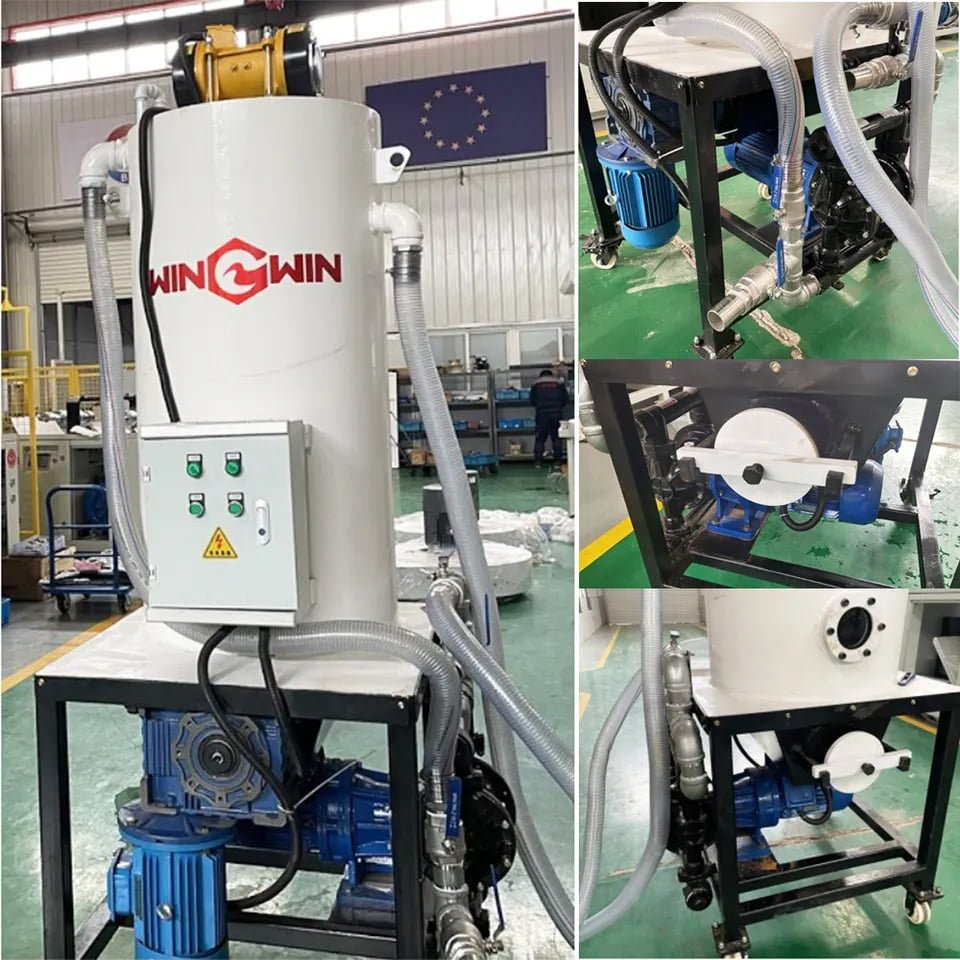
FAQ – Can the abrasives treated by auto waterjet abrasive removal system continue to be recycled?
Regarding this issue, I think we should look at it dialectically. It can be recycled, but to be honest, we don’t recommend this operation for the following reasons:
1. Different cutting workpieces require different abrasive specifications. Some materials may require 60 mesh abrasives, and some may require 80 mesh or 120 mesh. Generally, the larger the diameter of the abrasive product, the faster the cutting speed, but The edge of the cutting surface may be relatively not so smooth; on the contrary, the finer the abrasive, the slower the cutting speed may be, but the cutting edge will be particularly smooth, and there is no need for secondary manual processing and polishing of the workpiece. When the abrasive is mixed with ultra-high pressure water and hits the surface of the cutting workpiece, the abrasive will be crushed, resulting in finer abrasive that sinks to the bottom of the water tank, so the cutting efficiency of the secondary recovered abrasive will be much lower. Overall, it is still unable to save costs. It may save the cost of abrasives, but it also reduces the efficiency of cutting.
2. The auto waterjet abrasive removal system recycles not only abrasives, but also scraps from cutting workpieces. It may be particularly troublesome to separate some tiny scraps. If it is metal scraps, such as iron, it may be simpler. Tools such as magnets can be used, but if the separation of product debris such as glass or plastic wood chips is particularly cumbersome, the time cost and difficulty factor of the operation are still not as cost-effective as purchasing new abrasives.
To sum up, it is theoretically feasible to use the abrasives in the waste recovered by the auto waterjet abrasive removal system, but it is not very cost-effective in terms of operating costs and time costs, so we do not recommend this method of operation.

